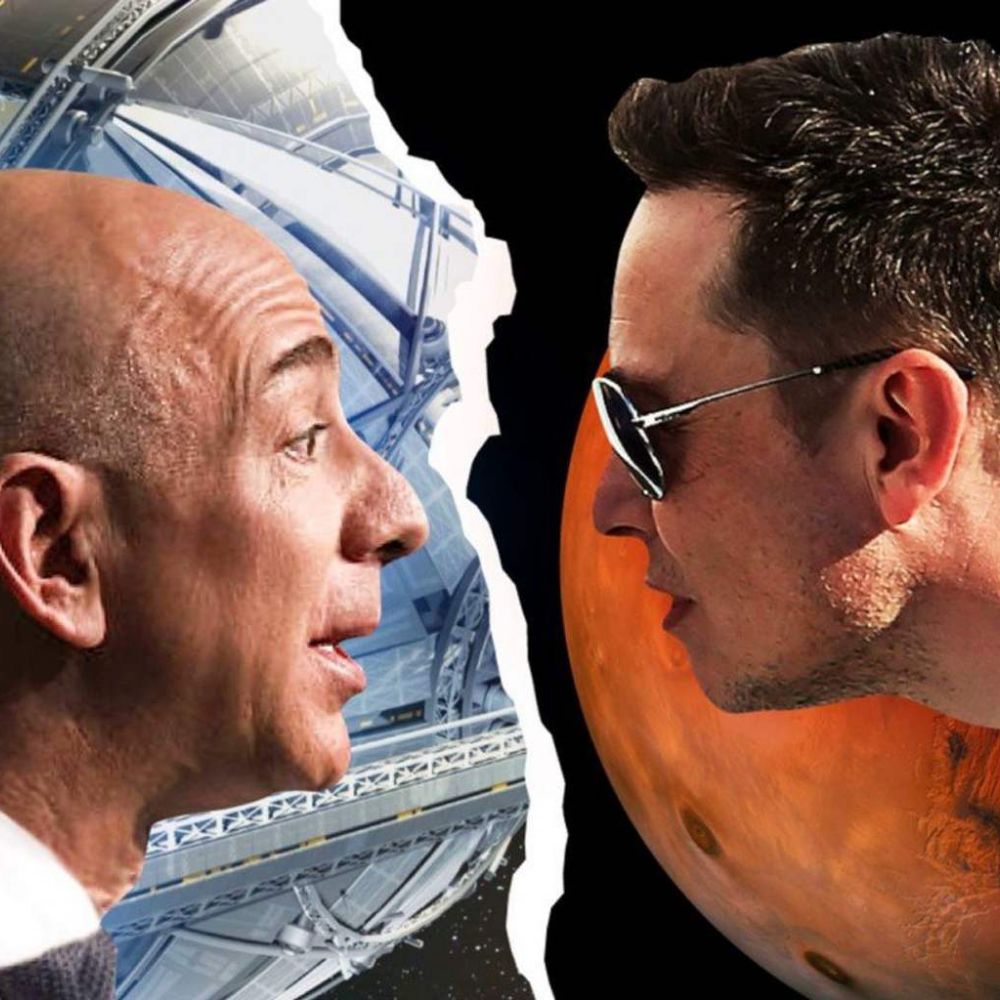Galactic clash ignites as Jeff Bezos vows to cleanse Earth while Elon Musk roars to pull humanity toward Mars.

© Jeff Bezos, founder of Amazon, in conflict with Elon Musk: “We can move heavy, polluting industries into space—Earth should be reserved for living and light industry.”
Imagine a world where Earth is free from smog, factories, and toxic pollution. Jeff Bezos believes it’s possible—not by fleeing to Mars, but by taking the mess out of our atmosphere entirely. While Elon Musk dreams of colonizing the Red Planet, Bezos is plotting a different course: moving heavy industry into space and keeping Earth a haven for living and light industry.
For Bezos, the climate crisis isn’t solved by leaving Earth behind—it’s solved by rethinking where work happens.
A new vision for Earth’s future
Unlike Musk, who promotes Mars as humanity’s “Plan B,” Bezos argues that the planet is too precious to treat as disposable. After his historic suborbital flight aboard New Shepard in July 2021, he told CBS News, “We can move all heavy, polluting industry into space. And work there.”
This isn’t just futuristic thinking. Bezos emphasizes that Earth should remain a natural reserve, with residential zones and lighter industries, while massive factories and energy-hungry operations exist off-world.
It’s a bold idea, but one gaining traction alongside the growth of private space companies. The vision is clear: centuries from now, the heaviest labor won’t happen on Earth at all.
From Mars to space colonies
Instead of terraforming Mars—a process that would take centuries and technology we don’t yet have—Bezos advocates building autonomous space colonies. Inspired by O’Neill cylinders, these rotating habitats can simulate gravity and support human life entirely off-world.
For him, these colonies are far more realistic than reshaping a planet. Musk’s Mars plan focuses on survival, but Bezos sees it as a chance to protect Earth, not abandon it. He explains that over the long term, moving industry into space preserves the delicate balance of life on Earth while opening new possibilities for human expansion.
I remember thinking about this when I visited a factory on Earth, choking on smoke and noise. The idea of all that heavy industry floating harmlessly above our heads suddenly seemed less like science fiction and more like common sense.
Laying the groundwork for a space economy
Bezos knows this vision isn’t immediate—it’s a multi-generational project that could take decades, even centuries, to fully realize. Through Blue Origin, he’s developing technologies to drastically reduce the cost of launching spacecraft and creating the necessary logistics to support off-world industrial infrastructure.
His goal isn’t just building factories in orbit. It’s creating a true space economy, where governments and private companies can operate factories, extract resources from asteroids, and generate energy using orbital solar panels. Over time, this could relieve pressure on Earth’s ecosystems while enabling a new era of innovation and industry.
A vision centuries in the making
Bezos’ plan is a patient one. It’s about laying foundations for future generations, preparing for a time when heavy labor in space becomes routine and Earth is a clean, livable planet. It’s a vision of coexistence: humanity can expand into the cosmos without sacrificing the planet we call home.
While Musk looks outward to Mars, Bezos looks at how Earth and space can work together. And for those of us watching, it raises fascinating questions: Could this be the future of industry ? Will our grandchildren work in orbit while Earth thrives below ?
What do you think—is Bezos’ space-industrial vision realistic, or just a dream ? Share your thoughts and join the conversation about humanity’s next frontier.